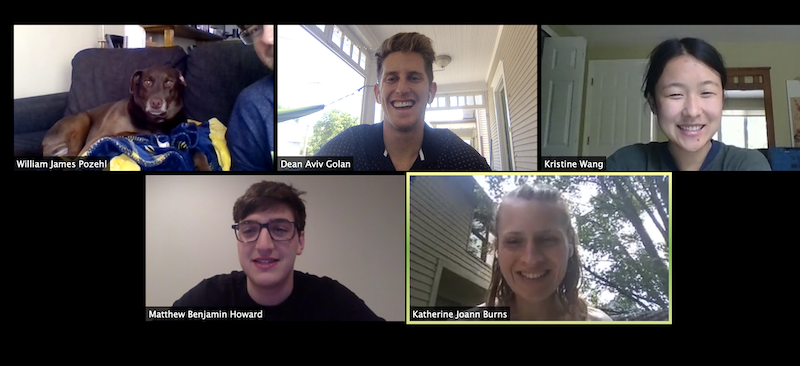
I remember very vividly complaining to my mom about my first few days working at CHEPS. So much paperwork, HIPPA and PEERS certifications, and other mundane tasks that bored me to no end. Similar to any onboarding experience, mine was filled was confusion and boredom. This time though, onboarding occurred over zoom calls and emails, which added more headaches to an already tough process. Then, I was put on my first two teams: PEDS resident scheduling and Trauma doctor scheduling, and even though I was clueless about what that meant, I was told to start working. However, after meeting with my two team leads and my assigned peer mentor, everything started to make sense. I especially remember one of my team leads telling me to just “give it a week,” which was frustrating advice to hear at the time, but in hindsight helped me have the patience to get over the learning curve.
Hi! My name is Matt Howard and I am a rising junior from Atlanta, GA. I am studying Industrial and Operations Engineering with a double minor in Computer Science and International Studies and this is my first summer at CHEPS. In addition to the two projects I mentioned above, I am also working on one more provider scheduling project, with a CHEPS alumnus in Beirut, as well as facilitating an online course teaching other students about the U.S. healthcare system and two other small organizational projects. Aside from my great projects, I have learned so much from working in CHEPS this summer that I want to share a bit of in this blog post, including how to onboard and work virtually, send good business emails, and stay organized.
Working through email and Zoom calls has definitely been better than I first expected. The CHEPS staff, in particular, has tried very hard to make this unprecedented summer as similar to normal as possible by designating 12:30-1:30 every day as “lunch club,” in which we participate in different activities either in small groups or as an entire CHEPS student body. These activities range from social/workouts on Mondays to Journal Club on Tuesdays to Lunch and Learns on Fridays. These activities allow us to meet and hang out with other CHEPS students that we don’t interact with in our project teams. We even did a virtual 5k run earlier in the summer, and I was able to participate even though I was home in Atlanta!
With all of these attempts to make life normal, there are some things I had to get used to when working virtually. The biggest piece of advice I can give is to be patient. Be patient with faulty connection, frozen screen sharing, or any other computer malfunction you can imagine. They happen. A lot. But everyone I’ve had the pleasure of being in a meeting with, both CHEPS students and faculty and residents and doctors at the hospital, have been extremely patient and helpful when these situations arise. I think everyone understands that adjustments have to be made, and are patient with them, especially in the medical community.

This summer I have also had the chance to improve my emailing skills. Although naïve, being able to send well-written emails is an important corporate skill to have. However, I must admit, whenever I send very important emails, for example, any email to Amy or a collaborator, I always run them by my teammates first. They are probably super annoyed at all the drafts I send out, but as the summer has gone along, the number of edits per draft has decreased, which I think means I am improving! Insert something about causation and correlation here. The biggest piece of advice when sending important emails, though, is to always read them over two or three times, each time looking at ways to improve them and check for errors. It may seem like overkill, but I think that having professional sounding emails makes a big difference in how you are perceived by people further up the ladder than you.
Lastly, organization is super important. To root this paragraph in context, last summer I did research for a different professor at a different University. The work was super cool, but he gave my partner and I a lot less structure, which led to us being super unorganized. We spent a lot of time at the end of the summer trying to retrace our steps and remember what we did. Not fun! That level of chaos would also NEVER fly with Amy, and I mean that in the best way. For anyone who reads this blog post that doesn’t know, CHEPS works through this online server, and it is spectacularly organized and documented. Every meeting has meeting notes, and every folder has subfolder after subfolder, keeping every document in the right place.
While I may have started my summer at CHEPS complaining about how boring the paperwork and necessary trainings were, I have nearly ended it with a huge smile on my face, having gotten to work on extremely meaningful projects with amazing people having learned a lot of new skills. I’ve also started to get used to the virtual working environment, as I realized that without the commute to North Campus, I get about 30 more minutes of sleep every night!
